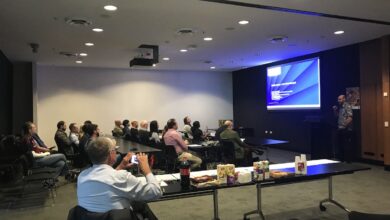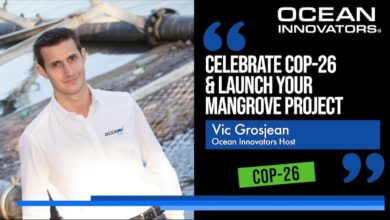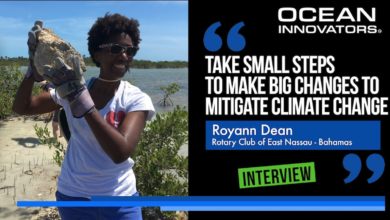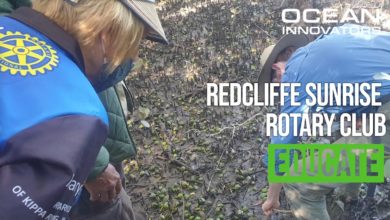- Knowledge capitalisation at the heart of the project
- Fill the knowledge gap
- An expedition to expose sustainable solutions worldwide
- How to help?
What if education was the key to solving the problem of ocean pollution? Where can we find resources to educate ourselves? How can we share this critical knowledge? These are the kind of question Utopia: a sea named plastics aims to answer. Plastic education is at the heart of the project, starting by using knowledge capitalisation on plastic.
Today, Ocean Innovators bring to light the work of Baptiste de La Gournerie and the project he has co-developed called UTOPIA: a sea named plastics. This young ‘knowledge advocate’ was curious to understand how the economy was functioning as a way to identify efficient leverages to make the world more sustainable. His willingness to understanding society’s dependence on plastic and the impact on the environment, biodiversity, and human health is at the heart of this project.
Knowledge capitalisation at the heart of the project
Utopia is a French NGO that aims at understanding societies’ dependence on plastic materials and the environmental, social, political, and economic impacts related to that dependence. Their mission is to bring more transparency and a better understanding of plastic issues.
“By analysing our dependence on plastics we want to highlight the efficient leverage to reduce plastic use in industries. We want to raise awareness to our local and national leaders on forthcoming issues, such as health issues, micro-plastic presence on drinking water, efficient waste management, and so on and so forth.”
The varied background and desire of its volunteer shape Utopia projects. Indeed, the association is composed of about 25 volunteer-citizens, aged 21-50 coming from agriculture, engineering, filmmaking, communication areas. Utopia is welcoming all and it translates into their projects.
The main activities conducted by volunteers aims at knowledge capitalisation. As Baptiste explains, there is a lot of knowledge available under the form of scientific papers and studies on plastic but then, forgotten. Utopia is capitalising on existing knowledge and share simple, concrete, and realistic solutions while raising concern on unhighlighted issues. They are taking that knowledge and vulgarising it into an “encyclopedia of plastic”. Moreover, other activities include the creation of pedagogical tools, web documentary intended for the general public, animation for the young in school, and soon, an expedition.
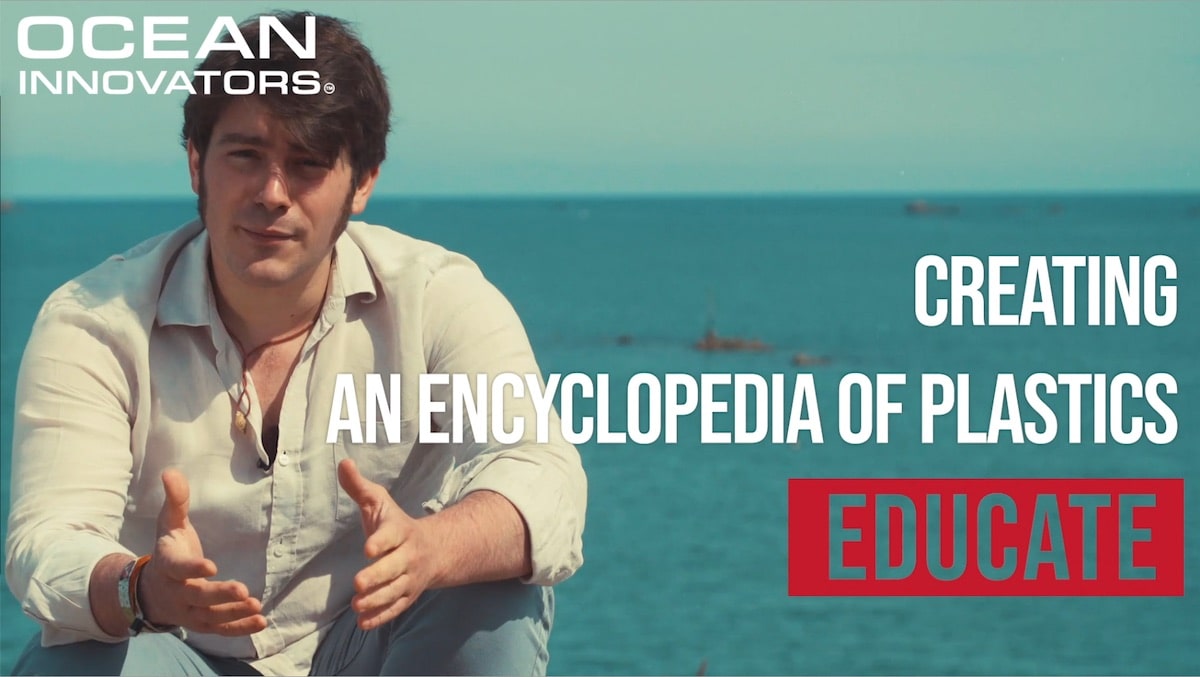
Fill the knowledge gap
The project came from a simple realisation, plastic was, and still is, a top issue discussed around the world. Yet, most people don’t have a real understanding of its issues and the impact of plastic. Baptiste takes the example of the term ‘issue of packaging’. Broadly used, but if you think about it, it is difficult to know to a full extend what it entails.
The fact is that plastic is widely used in all types of businesses and present in everyone’s life in some form. At the start, Utopia wanted to answer a simple question “where is the plastic coming from?”. Still, the answer was and is actually complicated. Utopia aims at giving this knowledge to the people. They create content that offers visibility and transparency on plastic issues and solutions.
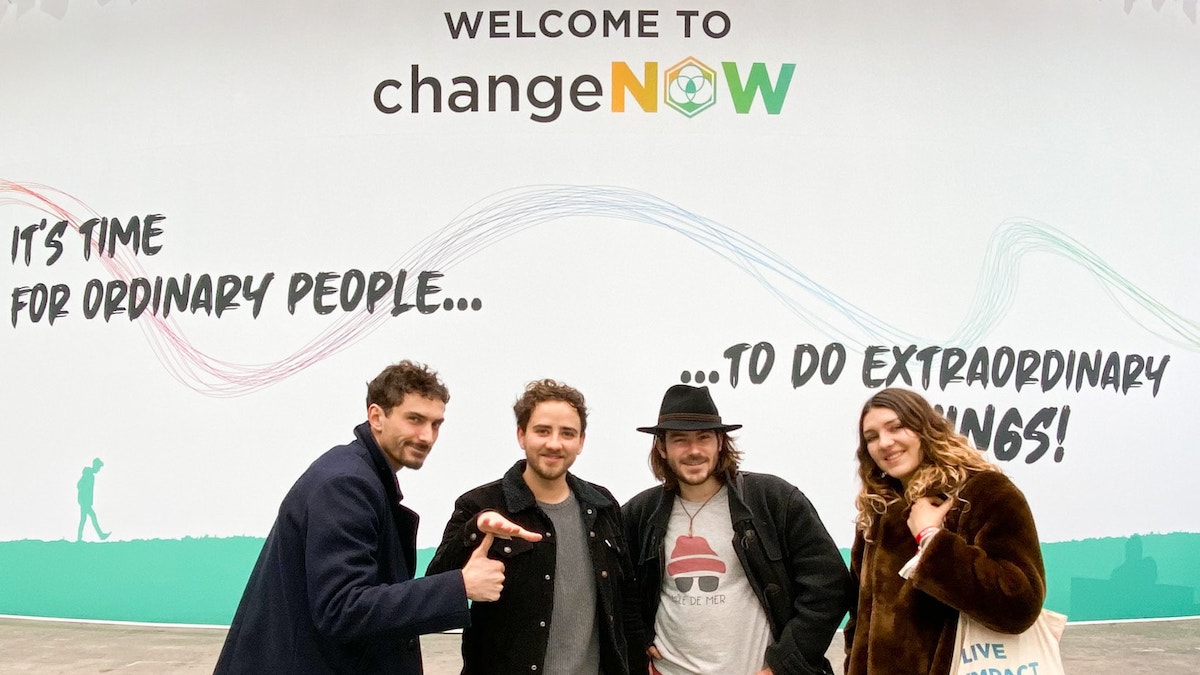
An expedition to expose sustainable solutions worldwide
The planned expedition will be the result of years of work to showcase plastic used in the industrial sector. Indeed, Utopia is caring multiple analysis started over the last 3 years. They have looked at the industry such as tourism, agriculture, automobile, or construction. The result of this work and the collection of already exciting knowledge will bring together in the encyclopedia of plastics.
To tackle the issue of plastic pollution and plastic dependence, Utopia’s next step is to compare these observations with what is done outside France. This is where the 10 months expedition comes into play. The Utopia crew is to set sail in mid-2021 around the Atlantic ocean. The journey will compare industrial plastic use and impact while realising a documentary to raise awareness on the issue.
How to help?
Financing is a big part of Utopia’s needs as they are growing and have ambitious projects. Baptiste said they have acquired a governmental grant but yet, it is not enough. For the upcoming expedition, Utopia needs funds. And this, to prepare the expedition, buy video and navigation pieces of equipment, so they can document their journey into a documentary.
Volunteers, to help in conducting our survey, communicating our actions, understanding those scientific papers and translation in ENGLISH and SPANISH. Part of their expedition journey will bring the team to English and Spanish speaking countries. The end goal for Utopia is to make available their work as many person as they can.
In conclusion, Baptiste highlights that it is not so much what they need, but more what YOU need by volunteering with them.
You can follow Utopia’s journey on their website https://utopia-earth.org/ . Also, don’t forget to give them a follow on their platforms: Instagram | Youtube | Facebook | Twitter | LinkedIn



